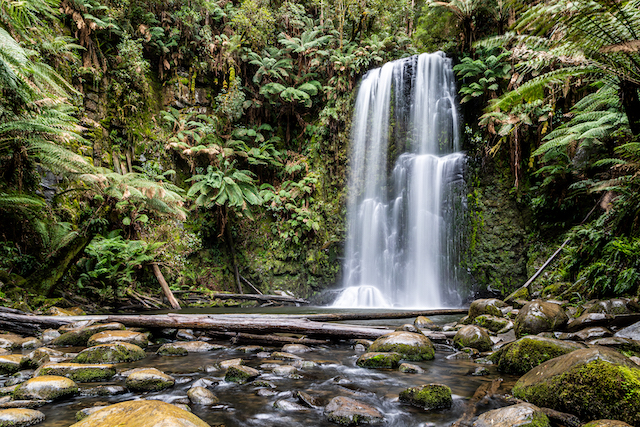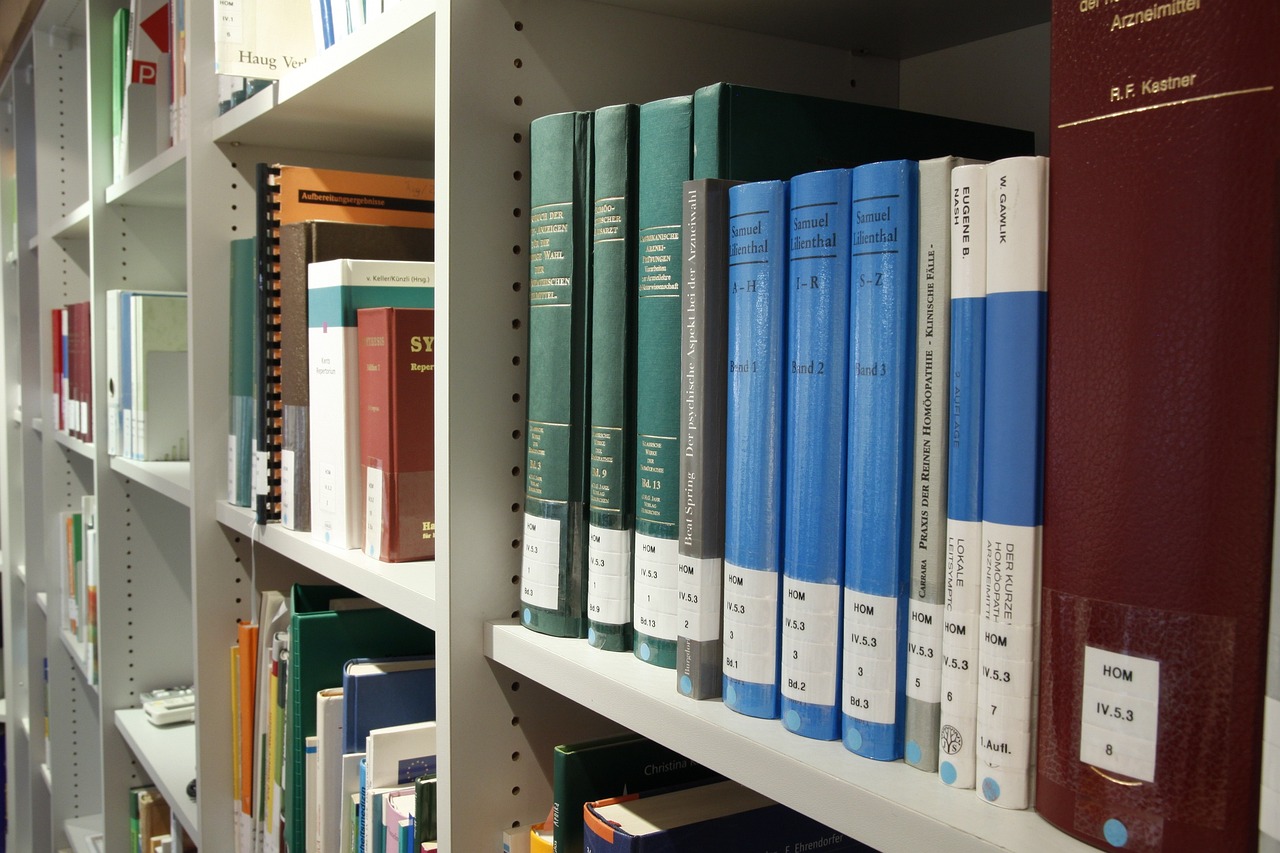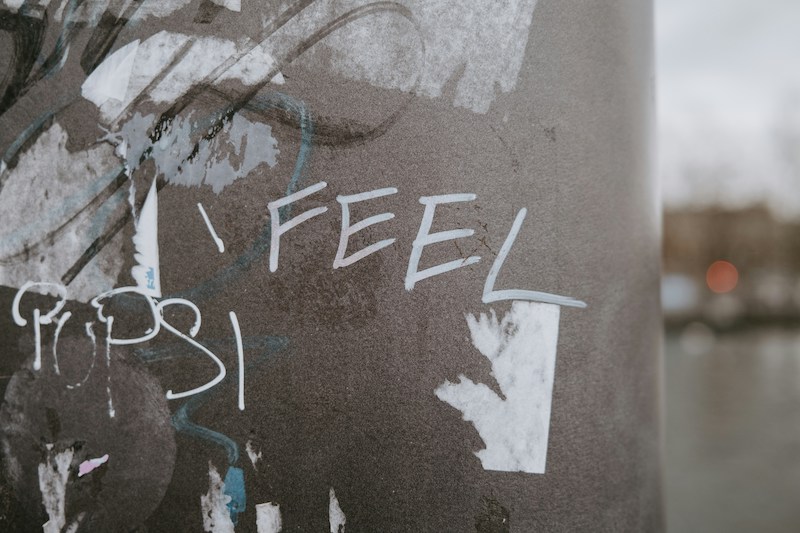Featured in

- Published 20241105
- ISBN: 978-1-923213-01-2
- Extent: 196 pp
- Paperback, ebook, PDF

Trigger warning: loss of a child, discussion of miscarriages
This piece was written with the permission of my sister and mother, though neither wants to read it. Our grief flows through us, always. Any errors are mine. I need to let my family and community members and other First Nations peoples know: please do not read if you are struggling with loss or are unable to read about those who’ve passed. With love and respect, Lee.
WE TURN OFF the highway onto the dirt road, my body tense and waiting. All the rain has ruined the grading in places, but the small ruts are nothing compared to how it used to look when we were kids. Now we bring our kids, to show them how we were shown. But not all. None of us can look at the empty seat.
The council or rangers have done a lot of clean up at the entry – put in a tank, installed a shelter with picnic tables. Signage points to a clearly cut path and I have to marvel at all the work, even as I fight unease at the massive changes that just a cursory glance shows. I hope it was done through consultation. It used to be a bush-bash to get where we’re going. It’s strange to walk this path carved from the land. Still, I appreciate the visibility, for the snakes but also my clumsy self.
Auburn Falls is a special place on my great-grandmother’s Country. You can feel it the second you walk out onto it. I’d much rather show you some images so you can see it. But they don’t do it justice either. It is a river surrounded by bushland, now called national park, its backdrop a mountain. Large flat rocks surround the river on one side, overlapping one another to form stepped places, making an enormous natural viewing platform. Individual boulders rise up above you and fall down into a deep gorge, one that has been exposed all my life. But not today.
Such a simple word, river. It is so much more than that. This is where the women came for millennia to have their babies. The experienced to help, the young to learn. I’m not sure if it’s special because of the generations born here, or if the women chose this place for the conditions and how it feels.
I step out from the trees and onto the ancient boulders, some of them taller than a bus, worn smooth from uncountable rains and torrents. In my memory they range in colours from sandy to grey with splashes of red, but the photos I took that day tell me I’m imagining things.
IN MY NEARLY forty years, I’ve never seen the water running. I’ve seen it flow sedately, make small little spaces you have to climb to find and swim or fish in. But my older family always talk about it being more. We’d find evidence of it in the boulders, the holes worn into the rocks. Sometimes other rocks had fallen into these holes and the water had worn them down, creating smooth beautiful things that we’d pretend were fossilised dinosaur eggs trapped in a nest of rock.
But today, 1 January 2022, I hear it roar. And I finally understand the name. I wonder if this is the way it was before all the weirs and dams upstream were plonked in, without thought for those downriver. The roaring leaves me worried – yes, this is how it’s supposed to be. But it took extreme rain to get here. Where is all this leading as the climate shifts? A growing dread makes my heart flutter, but I do what I always do. Push it down. Hold it in.
Auburn Falls is important; it hums a harmony that resonates within your body. Being here today, feeling the vibration of the racing water up through the rock into my body, feels like a pilgrimage. My eyes track my five niblings and I wince. A whisper inside me: it should be six. Another first. First Christmas without Akel. First New Year. First time at Auburn Falls. Wait, did he ever get to see this place? His sick little body may not have made the walk. Surely someone carried him here just once? Or is it one more thing our baby will never get to do?
We’ve deliberately come home this year to spend time with him, but also to heal and connect. My big sister and her partner vanish at times to visit him in the town cemetery. We’ll all go out soon to clean things up and take him his presents. I’m dreading it even as I know we have to do it. I’ve always hated crying.
I shove it all away. Focus on the present. Sink into the calm and comfort that this place offers. There’s lots to lose myself in. Mum shows us the fruit she ate as a kid. The worn spaces for giving birth. She points across the water to the cave none of us will ever venture into. We find the spray-painted emu tracks on some rocks, put there by rangers, whose job it is to protect. I want to scrub the desecration away. Our horror grows when we realise they’re guiding people to the forbidden cave.
My partner, Ben, and my sister’s partner take the kids exploring and they disappear over the rocks, heading for the top of the falls. Some of them pester me to go with. But I don’t want to risk it, so I lie about why. I sit for a moment beside my youngest niece, who is equally upset that she’s not allowed to go. Her little legs wouldn’t fare well on those large smooth surfaces, but I don’t say that. I just listen and make sympathetic sounds as she tells me how unhappy she is as her mother snaps a pic and Mum calls out, ‘Two May Fullers there,’ referencing my grandfather’s mother.
Mum insists I do some climbing so I can sit on a gigantic rock that extends out over the river. Again, I make excuses, but she’s stubborn, showing me the footholds and places to grip, swing here, slide there. I follow her path, knowing she’ll be angry at me later once she knows. If I ever tell her. We’ve all been through enough.
I make it out and stare down at the water, guessing at what lurks beneath. Trying to picture the gigantic rocks we’d normally climb down to, then scale over and over. Walking to find the few spots you could still swim in. Ben had wanted to dive in today but we’d told him no. Explained the risks of the surging water, the rocks it hid. The deep spaces where water would swirl. Not safe, not now.
Cross-legged, I let the roar take me. Close my eyes and breathe. Silently, I ask the Ancestors to protect the tiny spark inside me, keep it safe this time.
IT’S BEEN OVER two years since we started trying. The first loss was crushing, but mercifully private. Just Ben and I at home together with our grief. The second was at my little sister’s wedding. In my white bridesmaid’s dress, I’d been stressed about anyone seeing, knowing. I didn’t want her day to be marred, and I don’t share my heartaches easily. I’d managed most of it with no worries; only during the last of the photos, when I felt faint, did I have to bow out. Thankfully, she was okay with me leaving. I didn’t drink any alcohol that night, some vague useless hope keeping me from it, Ben and I enacting our plan to distract the other guests from my tonic water (hold the gin). We still had fun, though the pain ran underneath it all like the river currents over submerged boulders.
Months passed and we thought of trying again. But Kel took a turn, and life changed forever. 2021 lost to palliative care and pain. A hurt so deep it feels bottomless, inescapable as those deep swirling places.
And here I sit, now, holding the secret inside me and asking for help. In this place where thousands have been born, where my connection through my grandmother runs strong. Generations of women – could they help? Would they help?
The past year has brought a lockdown, a funeral. More information than I ever wanted to know about practicalities. Then home and more grief on the couch. Our staffy, Luna, followed me everywhere, pressing her warm furry body to mine. She even braved the terrors of the bathroom to sit on the mat and wait for me. Peeking behind the shower curtain to check in.
Slowly, life began again. Normality returning. People offered sympathies; I thanked them and shut it down. Sat silently in pain and worry for my sister and her family.
The clock ticked louder and I spoke to Ben about trying again. He asked me if I was sure. We went to a fertility doctor at the recommendation of my GP. Sat in her office, which was filled with images of happy newborns, as she handed us a ream of referrals and tests. Our next appointment set for the new year. One of the tests would flush out my uterus.
‘What happens if I get pregnant in the meantime?’ I asked.
She didn’t scoff. ‘Then call in and tell us. We’ll put the appointment on hold.’
My body must’ve heard her and decided to offer a single-finger salute. Two months later came two more lines on a piece of white plastic. Ben complained about the hundreds we spent on some of those tests. Wasted? Maybe. Maybe not. We’d find out.
A FEW WEEKS later, here I sit. My body a mix of grief, hormones and a terrible hope.
‘Please, Ancestors,’ I whisper inside. ‘Please.’
Before we flew home, we’d talked about how to hide what was happening. Ben again asked if I was okay. If I was sure. If this would hurt my sister. I never even questioned it. If we are that lucky, she’ll be overjoyed for us, thrilled to meet our child and be a good aunty to them. But what I won’t share with her is more loss.
I wait on that rock for a long time.
There is no response.
The explorers return and Ben gives me a frown when he sees where I’ve climbed. I point at Mum. ‘Don’t blame me.’
He jumps across and helps me back over. Trying not to be too obvious in his hovering. ‘You know how clumsy she can be,’ he humphs to no one in particular, and I can’t really argue.
We set off back to the car, everyone ready for lunch. We’re going down a steep slope when, for no reason, my ankle gives out as I step down, throwing me forward. My niece, Bella, is directly in front of me, so I twist to the side, skidding and sliding close to a drop down the hill. Ben is beside me in seconds. The mob all stops, yelling, cos that’s how we show concern.
As Ben brushes me off and we inspect the damage, the thought occurs that this is the Ancestors telling me no. That I’ll have to endure more. That I can’t keep this life inside.
I push it back, to be taken out later when I’m alone. I soothe my shaken niece, subtly hint to Ben that I haven’t hurt anything close to our secret, try not to think about how I’ll tell him.
On that walk back my arms and legs are bloodied and hurting. But it’s bearable. I’m fine somehow. In spite of my conclusions.
I’m quiet. Maybe too quiet – I have to keep assuring everyone I’m okay. And I am.
A small thought bubbles up in my guts. What if it was the Ancestors sending me a message, but not the one I’ve assumed – and not the one I’ve asked for? Were they showing me that no matter how many times I fall, how much damage I take, I’ll be okay? Because I am strong enough to bear the pain, with the help of my partner and family. As long as I accept that some things are out of my control.
A settling sensation through my body tells me all I need to know.
I CARRIED THAT revelation with me for the next six weeks. I’m not sure you can call it hope, but it helped combat the fear when it rose. Sometimes it felt like Ben and I were drowning in it, but we’d reach for each other in those moments, find the surface together. When the scans came back okay, I told my family via FaceTime. Their squeals and sobs of joy still make me smile when I think of them. Bella immediately made the connection that I was pregnant when I fell. I got in big trouble for that one.
I held that fall close to my heart for months. I never told anyone about the message I received that day, not even Ben. This wasn’t a conscious choice; it just wouldn’t come out. Not until my daughter had arrived safe
and sound.
During labour, I kept picturing Auburn Falls. Thinking of all those women before me who laboured without benefit of pain relief or medical help, crouched over those flat, open rocks, supported by mothers, aunts, sisters, cousins. The roar of the river to guide and lift them. I swear I heard it in the machinery around me, timed my breath with it. I know I wasn’t alone in that room.
Unlike the women before me, Ben was beside me the whole time, advocating for us, never complaining. The two days after we were a small cocoon of joy in a room where we added to our family. Our traditions are wonderful, but I couldn’t have done it without him, would never have wanted to.
A week later, I was sat with Mum talking about the labour, my baby asleep in her bassinet. Ben and his parents preparing a meal for all of us. Tired, still healing, but happy. And in front of everyone, I cried.
Eleven days after giving birth, we woke to find our beautiful Luna had gone in the night. Losing her at such a special time, when the image of our family had always included her. When she’d been so integral to helping me make my way back after Kel.
My phone throws up memories now, happy times filtered through loss. The waters of grief rise and rush so hard they threaten to sweep us into churning dark places. Like boulders worn smooth, we are shaped, forever changed. But the waters ebb and flow and life goes on. Even when sometimes it doesn’t feel fair.
My grief marks me, but so does my love. I carry both in their honour.
Those we love are always with us.
Until we meet again.
This piece grew out of a research project called Kind Regards with academics from the University of Canberra and Edith Cowan University, about connecting with Country and one another.
Image courtesy of Wikimedia Commons
Share article
More from author

Following the song
Memoir Click here to listen to Lisa Fuller read ‘Following the song’. Western knowledge is increasingly problematic because of its dominance over other people’s world knowledge and learning...
More from this edition

Feeling our way to utopia
Non-fiction JANE AUSTEN WAS just twenty-one years old when she wrote her first novel, Sense and Sensibility. Today, we understand her works as more than...

Under a spell
Non-fiction IT COSTS £3 to visit the gateway to hell. Midsummer and I’m somewhere on the border between Derbyshire and Nottinghamshire, staring down the black...

The power of a curse
Non-fiction IT WAS JANUARY 1995 when my father showed me how to lay a Gypsy curse. I had just published my first novel, Crazy Paving, and...